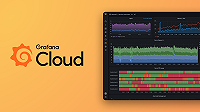discovery.nomad
discovery.nomad allows you to retrieve scrape targets from Nomad’s Service API.
Usage
discovery.nomad "<LABEL>" {
}Arguments
You can use the following arguments with discovery.nomad:
At most, one of the following can be provided:
authorizationblockbasic_authblockbearer_token_fileargumentbearer_tokenargumentoauth2block
no_proxy can contain IPs, CIDR notations, and domain names. IP and domain names can contain port numbers.
proxy_url must be configured if no_proxy is configured.
proxy_from_environment uses the environment variables HTTP_PROXY, HTTPS_PROXY, and NO_PROXY (or the lowercase versions thereof).
Requests use the proxy from the environment variable matching their scheme, unless excluded by NO_PROXY.
proxy_url and no_proxy must not be configured if proxy_from_environment is configured.
proxy_connect_header should only be configured if proxy_url or proxy_from_environment are configured.
Blocks
You can use the following blocks with discovery.nomad:
The > symbol indicates deeper levels of nesting.
For example, oauth2 > tls_config refers to a tls_config block defined inside an oauth2 block.
authorization
The authorization block configures generic authorization to the endpoint.
credential and credentials_file are mutually exclusive, and only one can be provided inside an authorization block.
Warning
Using
credentials_filecauses the file to be read on every outgoing request. Use thelocal.filecomponent with thecredentialsattribute instead to avoid unnecessary reads.
basic_auth
The basic_auth block configures basic authentication to the endpoint.
password and password_file are mutually exclusive, and only one can be provided inside a basic_auth block.
Warning
Using
password_filecauses the file to be read on every outgoing request. Use thelocal.filecomponent with thepasswordattribute instead to avoid unnecessary reads.
oauth2
The oauth block configures OAuth 2.0 authentication to the endpoint.
client_secret and client_secret_file are mutually exclusive, and only one can be provided inside an oauth2 block.
Warning
Using
client_secret_filecauses the file to be read on every outgoing request. Use thelocal.filecomponent with theclient_secretattribute instead to avoid unnecessary reads.
The oauth2 block may also contain a separate tls_config sub-block.
no_proxy can contain IPs, CIDR notations, and domain names. IP and domain names can contain port numbers.
proxy_url must be configured if no_proxy is configured.
proxy_from_environment uses the environment variables HTTP_PROXY, HTTPS_PROXY, and NO_PROXY (or the lowercase versions thereof).
Requests use the proxy from the environment variable matching their scheme, unless excluded by NO_PROXY.
proxy_url and no_proxy must not be configured if proxy_from_environment is configured.
proxy_connect_header should only be configured if proxy_url or proxy_from_environment are configured.
tls_config
The tls_config block configures TLS settings for connecting to the endpoint.
The following pairs of arguments are mutually exclusive and can’t both be set simultaneously:
ca_pemandca_filecert_pemandcert_filekey_pemandkey_file
When configuring client authentication, both the client certificate (using cert_pem or cert_file) and the client key (using key_pem or key_file) must be provided.
When min_version isn’t provided, the minimum acceptable TLS version is inherited from Go’s default minimum version, TLS 1.2.
If min_version is provided, it must be set to one of the following strings:
"TLS10"(TLS 1.0)"TLS11"(TLS 1.1)"TLS12"(TLS 1.2)"TLS13"(TLS 1.3)
Exported fields
The following fields are exported and can be referenced by other components:
Each target includes the following labels:
__meta_nomad_address: The service address of the target.__meta_nomad_dc: The data center name for the target.__meta_nomad_namespace: The namespace of the target.__meta_nomad_node_id: The node name defined for the target.__meta_nomad_service_address: The service address of the target.__meta_nomad_service_id: The service ID of the target.__meta_nomad_service_port: The service port of the target.__meta_nomad_service: The name of the service the target belongs to.__meta_nomad_tags: The list of tags of the target joined by the tag separator.
Component health
discovery.nomad is only reported as unhealthy when given an invalid configuration.
In those cases, exported fields retain their last healthy values.
Debug information
discovery.nomad doesn’t expose any component-specific debug information.
Debug metrics
discovery.nomad doesn’t expose any component-specific debug metrics.
Example
This example discovers targets from a Nomad server:
discovery.nomad "example" {
}
prometheus.scrape "demo" {
targets = discovery.nomad.example.targets
forward_to = [prometheus.remote_write.demo.receiver]
}
prometheus.remote_write "demo" {
endpoint {
url = "<PROMETHEUS_REMOTE_WRITE_URL>"
basic_auth {
username = "<USERNAME>"
password = "<PASSWORD>"
}
}
}Replace the following:
<PROMETHEUS_REMOTE_WRITE_URL>: The URL of the Prometheus remote_write-compatible server to send metrics to.<USERNAME>: The username to use for authentication to theremote_writeAPI.<PASSWORD>: The password to use for authentication to theremote_writeAPI.
Compatible components
discovery.nomad has exports that can be consumed by the following components:
- Components that consume Targets
Note
Connecting some components may not be sensible or components may require further configuration to make the connection work correctly. Refer to the linked documentation for more details.



